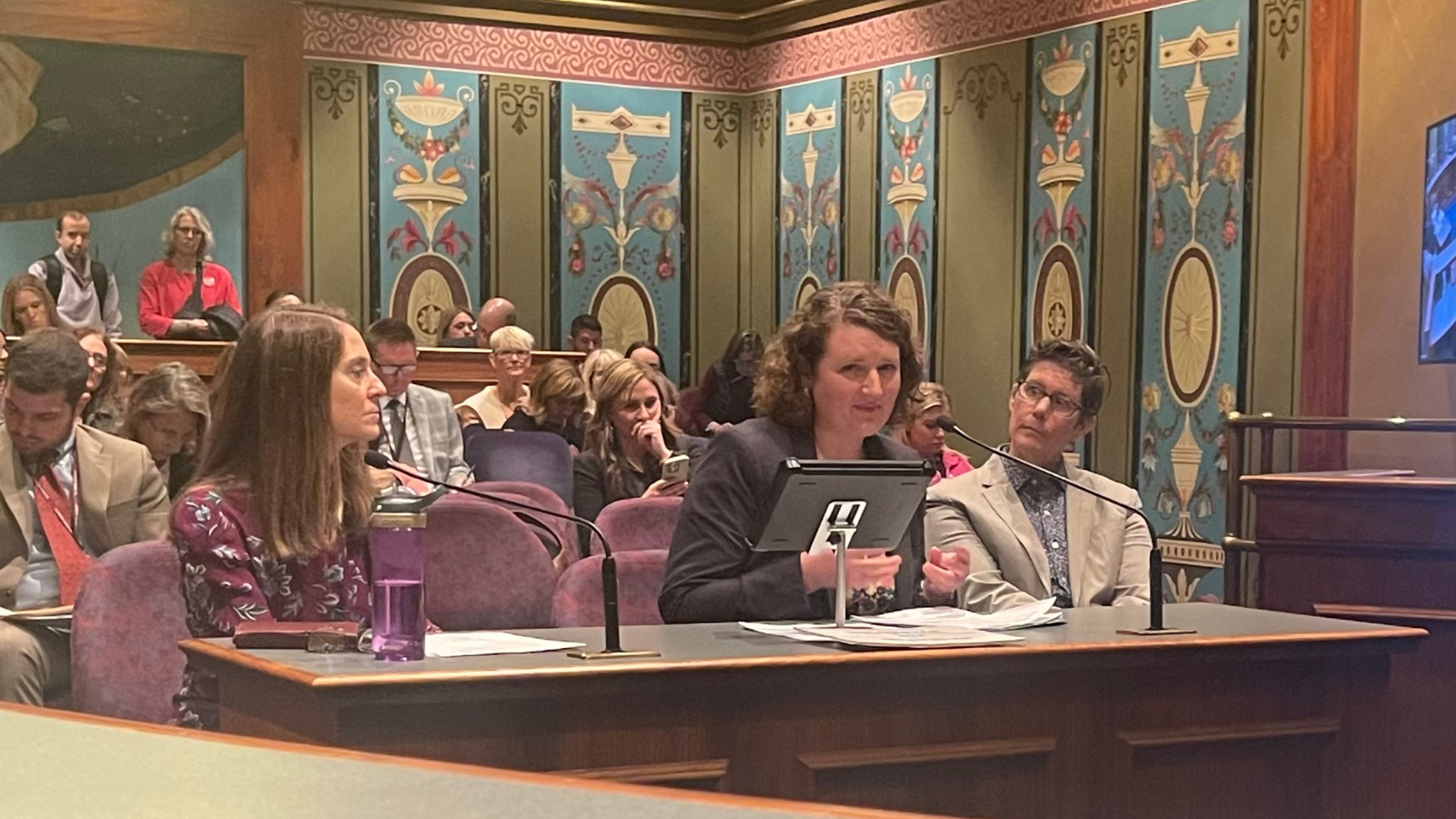
Thursday March 20, 2025 critical legislation phasing out the use of certain types of single-use plastics, polystyrene foam cups and take-out containers, advanced out of the Illinois State Senate Environment and Conservation Committee. Following stakeholder testimony, SB1531, a bill phasing out single-use foam foodware sponsored by Sen. Laura Fine received the votes needed to pass. The bill has now cleared the first critical step in the legislative process and heads next to the Senate floor.
Emily Kowalski, Outreach & Engagement Manager with Environment Illinois provided testimony on behalf of Environment Illinois and the Coalition for Plastic Reduction.
Testimony of Emily Kowalski in support of Senate Bill 1531
Chairperson Ellman, Vice Chairperson Johnson, Spokesperson Chesney, honorable members of the committee: thank you for the opportunity to testify today. My name is Emily Kowalski and I am the Outreach & Engagement Manager of Environment Illinois, a statewide organization with one mission: to protect the natural world.
I am speaking today on behalf of the Coalition for Plastic Reduction, a coalition of nearly 50 environmental, consumer and community organizations. We are unified in our support of Senate Bill 1531, to protect our water, wildlife and ourselves from the harms of single-use plastic pollution. Thank you Senator Fine for your leadership on this issue.
Senate Bill 1531 prohibits disposable polystyrene foam foodware from being sold or distributed in Illinois beginning January 1, 2030.
My testimony will focus on the environmental and human health harms of single-use plastic pollution and the need to reduce single-use plastic use.
Plastic pollutes the Great Lakes and Illinois’ environment
An estimated 22 million pounds of plastic enters the Great lakes each year. Far too much of that plastic pollution is from single-use items like foam cups, takeout containers and other foodware. Nothing we use for just a few minutes should pollute our waters and environment for hundreds of years.
One of the worst forms of plastic pollution is single-use polystyrene foam. Polystyrene foam is lightweight and breaks apart easily, but it persists in the environment in tiny particles. Foam pieces are the #3 top litter item collected at beach cleanups based on data collected by Alliance for the Great Lakes volunteers.
Plastic harms wildlife and human health
Plastic ingested by wildlife like fish, birds and turtles can cause them to starve. Polystyrene is made from styrene which is a known toxic carcinogen. This and other chemicals used in plastic can impact our health and the health of wildlife. Scientists have found that even tiny particles of plastic can alter the behavior and metabolism of fish. Studies have also shown that harmful chemicals in plastics can leach into our bodies.
We need to reduce single use plastic
We can’t recycle our way out of the problem. Polystyrene foam isn’t accepted for curbside recycling in Illinois. Although limited drop off locations do exist, less than 1% of foam is recycled.
Viable alternatives to foam foodware are already on the market. Some restaurants and businesses have moved away from polystyrene foam foodware on their own, but to protect all Illinoisans and our environment, we need to eliminate polystyrene foam foodware across Illinois. The Coalition for Plastic Reduction has negotiated with stakeholders and come to an agreement reflected in this bill as amended. Senate Bill 1531 has an implementation date of Jan 1, 2030 to provide ample time for businesses to transition to alternatives.
Illinoisans are ready to get rid of plastic foam cups and takeout containers. Last summer, Environment Illinois’ team had door to door conversations with over 10,000 Illinoisans, thousands of which took action in support of statewide action to eliminate polystyrene foam foodware.
Again thank you for the opportunity to testify today. I will be happy to answer any questions from the committee.
